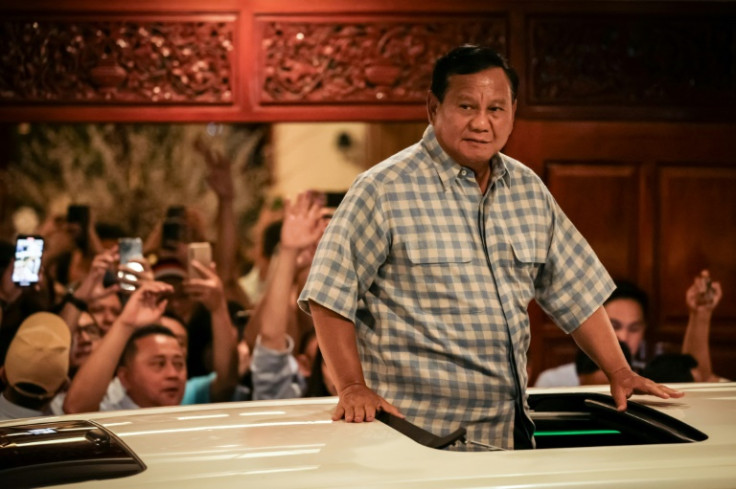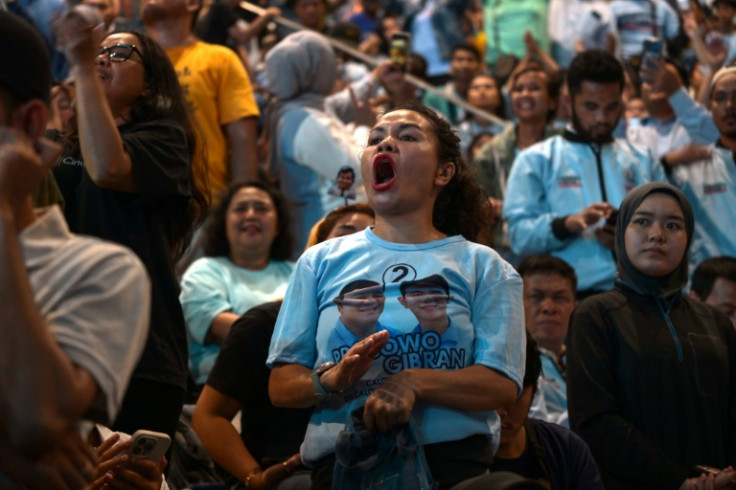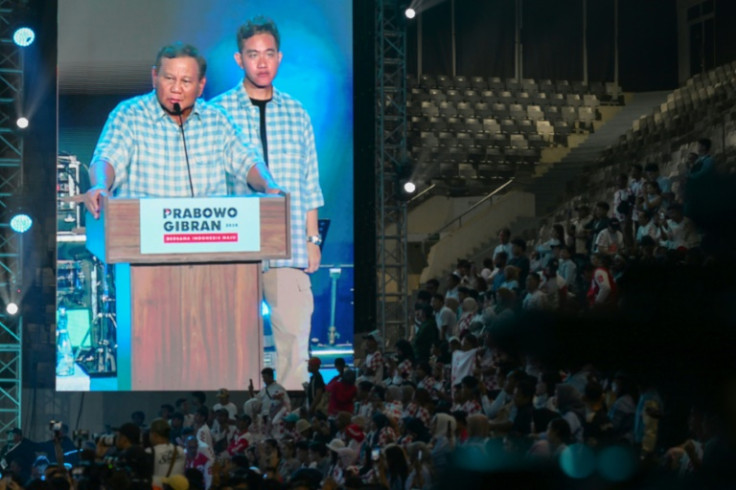
Indonesian Defence Minister Prabowo Subianto on Thursday looked set to become the new president of the world's third-largest democracy, likely avoiding a runoff vote against election rivals who have yet to concede.
The ex-general declared victory Wednesday evening after preliminary counts from government-approved pollsters -- previously shown to be reliable -- indicated he would win high office with a majority in his third attempt.
The slower, official count by the archipelago's election commission also showed the 72-year-old on course for the presidency at 55.97 percent with 39 percent of votes counted, more than double his nearest rival.
"This victory should be a victory for all Indonesians," Prabowo told a rapturous crowd in the capital Jakarta on Wednesday evening.
He said he would assemble a government "consisting of the best sons and daughters of Indonesia".
His supporters danced outside his Jakarta residence after the preliminary polls showed him winning.
The government-approved polling groups' "quick counts" have also been used to claim victory in previous elections.
Prabowo lost the previous two presidential polls to popular outgoing leader Joko Widodo
But he now appears on the cusp of succeeding his former rival, who observers say has unfairly backed his defence chief's campaign.
Fellow candidate Anies Baswedan, who had been the favourite to battle Prabowo in the event of a runoff, said he would respect the result only when it was finalised.
"We have to respect the people's decision," he told reporters at his campaign headquarters after his rival claimed victory.
A spokesperson for Ganjar Pranowo, polling third, told reporters his team had discovered "structured, systematic and massive" electoral fraud, without providing evidence.
But analysts said a Prabowo win was almost assured.
"It's all over for Anies and Ganjar," said Adrian Vickers, a professor at the University of Sydney.
Much was made internationally about Prabowo's human rights track record in the run-up to the vote.
NGOs and former bosses accuse Prabowo of ordering the abduction of democracy activists towards the end of the three-decade Suharto dictatorship in the late 1990s.
Some of those activists have never been found, and witnesses accuse his military unit of committing atrocities in East Timor.
He was discharged from the military over the abductions but denied the allegations and was never charged.
But voters have appeared to overlook that history as he rehabilitated his image from a feared military figure to a "cuddly grandpa" who dances on social media.
"The 'Gemoy' (cute) narrative has made him popular," said 24-year-old Adellia Natasha, who voted in central Jakarta.
"But it makes youngsters blinded to politics. They don't see the track record. They only see him as a gemoy figure."
Another key factor in his popularity was picking Widodo's eldest son, the 36-year-old Raka, as his running mate, a move that raised eyebrows.
Indonesia's then-chief justice, who is Widodo's brother-in-law, in October changed the rules that had barred candidates below age 40 from running for high office.
Some observers have also accused Widodo of improperly using government funds to support Prabowo, who has rejected accusations of impropriety.
Countries commenting on the election have so far avoided congratulating the fiery populist on his apparent victory, with the official announcement still weeks away.
Australian Foreign Minister Penny Wong told a Senate hearing on Thursday that Canberra looked "forward to working closely with the next president" when he is inaugurated in October.
The United States congratulated Indonesians for their "robust turnout" in a statement that did not mention Prabowo.
Rights groups, meanwhile, pointed to rights concerns about Prabowo, saying he needed to be transparent about his history.
"That goes for both current rights issues as well as accountability and justice for what happened in the past," said Phil Robertson, Asia deputy director of Human Rights Watch.









